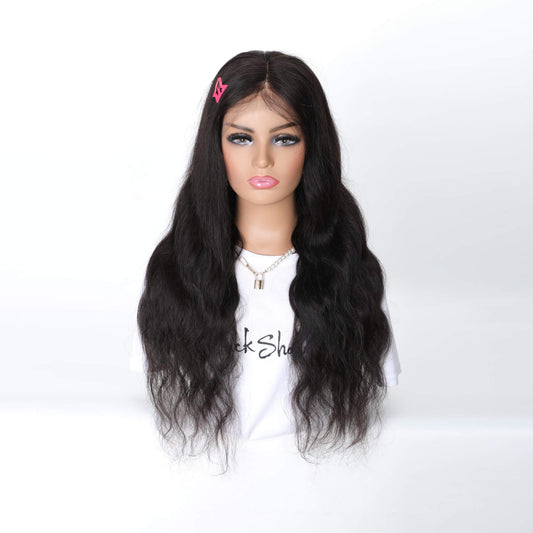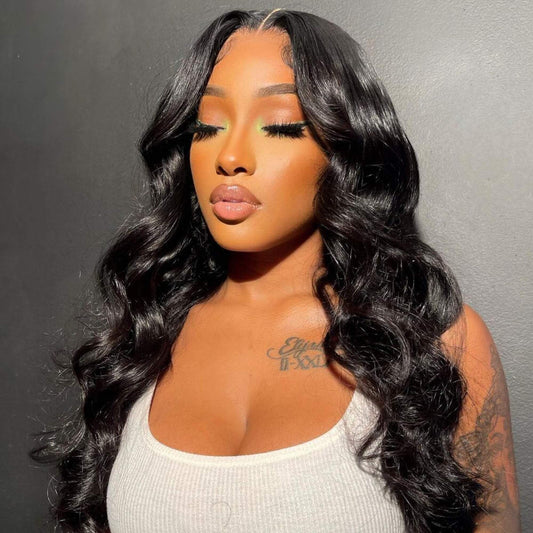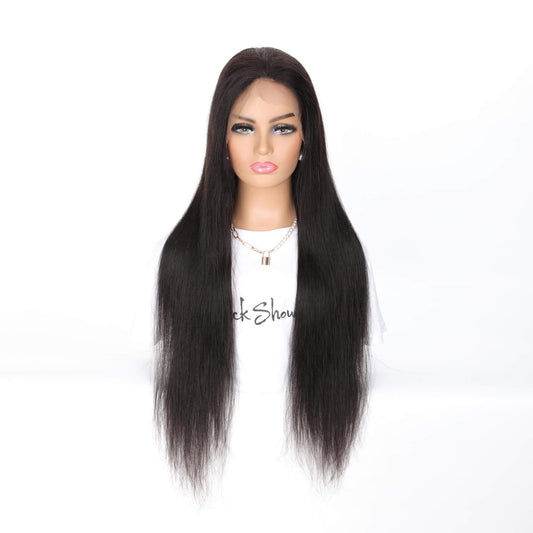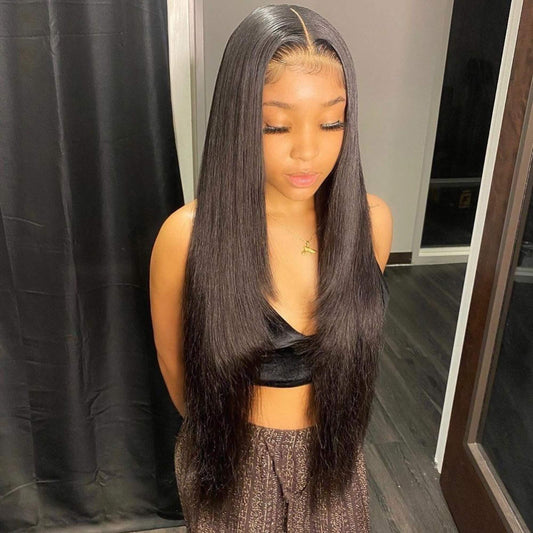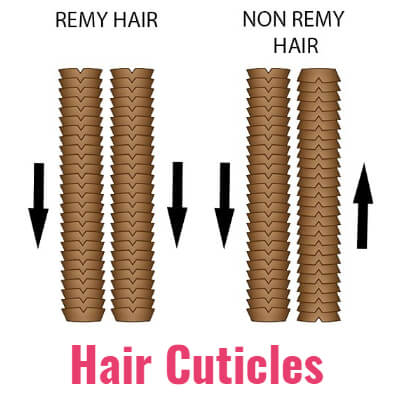Remy Hair VS Virgin Hair
Hair has been a significant fashion statement since before and will continue to be, at least, until the world is swallowed by an apocalyptic event and ceases to exist. The truth is: as far as looks are concerned, your hair will always have an impact on your style, appearance, carriage, and identity. Good thing there are opportunities to use versatile hair extensions now. It widens your choices; gives you a range of styles and appearances you can have at any given time.
However, if you're going for a natural look, which most people are inclined to most of the time, human hair extensions are just it. And none hold the forte better than Remy hair and Virgin hair.
Both hair extensions might be natural, but they've also got their own special thing going for them. And it begs the question of which is better.
How can you decide which to drop or use? Would it be Remy hair, Virgin hair, or non-Remy hair?
This post intends to help you make the right decision. But first, you must know a thing or two about these hair types. At the very least, you deserve to know why they're viable options.
What is Remy Hair?

Have you always wondered why Remy hair commands such high price tags in the market? Sure, it does look good and attractive, but what's all the fuss about? What makes it different from all other hair extensions?
The answer is quite simple. Remy hair is natural human hair, but it's unique even among other types of human hair because it still has its cuticles intact. Hence its natural look, feel, and general healthiness.
What Are Cuticles?
Cuticles are the layers of dead cells that coat the outer part of your hair shaft. They strengthen your hair, keep it smooth, and protect it from damage. If you've ever had experience with hair extensions that tangle and look frayed, then you can attest to what the absence of cuticles can do to hair.
Synthetic Hair Cuticles .vs Remy Hair Cuticles
Synthetic hair adopts artificial cuticles made from silicon and gets that smooth and shiny look for a while. But it's not natural, and the cuticles will start to fade quicker than you expect. Hence, the frayed appearance and entanglements that often occur with synthetic hair. This is where Remy hair makes an industry statement.
Having natural cuticles ensures that every strand flows smoothly in the same direction without tangling. It retains its silky feel and glossy sheen for as long as it lasts, typically months longer than other types of hair, with good maintenance.
Indian and Russian hair, for instance, can last from six to eight months and ten to twelve, respectively. If you need to purchase one, make sure you ask how long that Remy hair lasts. And always make sure to pay keen attention to the guides on your Remy hair package. It goes a long way to determine how long you can keep your Remy hair in top-notch quality.
How To Look Out for Remy Hair
Examine the Cuticles
You can tell Remy hair from other types by looking out for its cuticles when you want to make a purchase. Comb your fingers up and down the hair extension. It should feel smooth when you're moving down and rougher when you're going up. That oscillation between smooth and rough signifies the presence of cuticles.
If shopping online, check for related information in the product description.
Look Out for Differences in Color Along the Stretch of Hair
Also, the color of the hair roots and tips will differ for Remy hair because it's always going in one direction.
Ultimately, you can curl, straighten, or style Remy hair anyhow you want without fear of knots, tangling, or matting.
What is Virgin Hair?
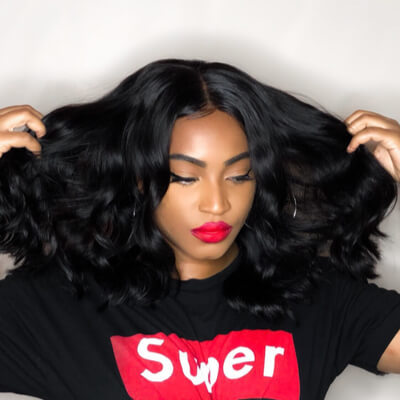
If you're interested in hair extensions and human hair wigs, virgin hair is a term you may have come across. But you don't need to rack your brain to figure out what it is.
In simple terms, virgin hair is the hair that we are all born with; that natural, untouched, uncolored, and unprocessed hair that grows straight from your scalp.
What makes virgin hair special?
If you've applied perms, color treatments, dyes, bleaches, and any other kinds of chemical treatment to your hair, it's no longer considered virgin hair. It doesn't matter if you treated it just once; that's as far as purity in virgin hair goes.
The only way to restore virgin hair after it's 'worn out' is to cut your hair to the roots and start all over again. This might be pretty unpleasant, depending on how much time and effort you put into growing your hair.
But this option is only open if the hair grows on you.
If the virgin hair is an extension or wig, there's no coming back from that. So, always ensure you know what you're doing before treating or applying any chemicals to virgin hair.
Why is Virgin Hair so popular?
Virgin hair stands out from the assortment of hair types available in the market because of its strength, health, and longevity. It may not have undergone sophisticated processing like other types, but it demands extreme care and attention.
Virgin hair will last longer than most extensions out there because it's in its natural state. But that's also the same reason why you can't just pick up any virgin hair.
Finding a fit can be tricky because not all virgin hair will meld comfortably with yours. So, you've got to keep a watchful eye out for virgin hair options that will suit the kind of hair you have.
What is Non-Remy Hair?
If you've heard of Remy hair and Virgin hair, you must have also heard of non-Remy hair. And you must certainly have questions. What is non-Remy hair? And why is it so popular? These three hair types often spring up in discussions about extensions and wigs, and it's not for no reason.
What is non-Remy hair made from?
Typically, it'd be easier to think of non-Remy hair as the opposite of Remy hair. But that's not the case, not exactly anyway.
Non-Remy hair is also human hair. But unlike Remy and Virgin hair, it is gotten randomly from different sources and has both its roots and tips mixed so that it doesn't run in the same direction. As a result, the cuticles aren't arranged harmoniously.
Some cuticles point downwards while others point upwards. Therefore, making the hair tangle and roughen quicker than expected.
What's the Difference?
Non-Remy hair undergoes processing before it arrives at the market. The natural hair is stripped off cuticles during processing, thus losing most of the glossy sheen and moisture that characterizes Remy hair.
To make up for this, silicon is applied to the hair to regain its luster and moisture. But this isn't good news either because the silicon coating never lasts, and the hair starts to fray, matte, and tangle before long.
Its nature opens up several options for you. Unlike Virgin hair, non-Remy hair can come in various colors and styles.
Compared to Virgin hair and Remy hair, non-Remy doesn't cost an arm and a leg. So, if you're on a tight budget but need to slay imminently, you may have to settle for non-Remy hair.
Which One is Better for You?
Options like this are never easy to make. Especially considering that these hair types are all human hair and possess unique looks. But there are parameters you can use to gauge which of Remy, Virgin, or Non-Remy hair is your style.
Budget
All hair extensions have their price tags, and human hair sits at the top. But it doesn't mean that all human hair costs the same. Some will definitely be higher than others. And in this post, the least expensive is the non-Remy hair because it is not as pristine and untouched as the others.
Therefore, your budget will determine which hair type will be best for you at the moment. If your pocket can carry the high price tags on Remy and Virgin hair, then you should go for it. If it can't, then you have to settle for non-Remy hair. It'll look good on you; it won't just last as long as the others.
Longevity
If you're looking to make a one-time purchase for hair extensions and probably not bother yourself again for about six months to a year, then Remy or Virgin hair is a good choice. They'll cost a fortune for sure, but it'll be worth it in the long run.
However, if making constant purchases based on the influx of recent styles in the hair market better defines your person, you might want to go for Non—Remy hair. Its limited longevity allows you to buy more without cluttering up your space.
Personal Preference
If you want to go for an utterly natural touch, Virgin hair will suit you better. Its pristine condition speaks for itself, allaying every doubt regarding its nature. You can rock Virgin hair and have everyone thinking that all those curls or waves are yours.
If you want hair that's been treated or dyed but hasn't lost its natural touch, go for Remy hair. You might also like non-Remy hair for reasons best known to you.
In the end, you're the carrier of the hair, and you know what sits well with you and what does not in terms of style.
Comfort
Remy and Virgin hair are renowned for their luster and silkiness. Carrying hair that doesn't fray or tangle leaves a soft feeling and keeps you comfortable all day, unlike when you use hair extensions that are dry, itchy, and aesthetically unpleasant.
Non-Remy hair can fit well into this category. The only problem is that its luster isn't sustainable.

